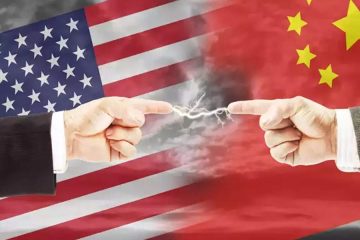A Majority of Economists Think There Will Be a Recession by the 2020 Election

How’s the economy doing?
Better than you might expect, and worse than you might have hoped, according to the National Association of Business Economics.
According to the organization’s latest survey of 53 professional economic forecasters, the consensus is that the economy will continue to grow at a 2.6% pace in 2019, down from last year’s 2.8% rate, and will slow to 2.1% in 2020. However, as the outlook for this year still seems good, a majority think a recession is possible before the next presidential inauguration.
Personal spending remains a bright spot. “The consumer continues to be the driver in the U.S. economy,” said Jack Kleinhenz, chief economist for the National Retail Federation and one of the analysts of the report. “Real personal consumption expenditures for 2019 is 2.4% year-over-year growth. It was 2.6% in 2018.”
Job growth continues to be brisk, with the average monthly growth expected to be 184,000 in 2019 and 139,000 in 2020.
But not all is good. “There are really headwinds in the housing market in terms of residential investment,” Kleinhenz said about this important “piece of the consumer equation.” The group expects that residential investment in 2020 will be down 1.3% from 2019’s levels. Because home prices have risen, particularly in the lower third of housing stock, many are now priced out of the market.
More than half of the panel said “the greatest downside risk is trade policy and increased protectionism,” Kleinhenz said. The thorny issue is a major driver of the possibility that growth could collapse by the end of next year. Right now, only 15% of the participants expect a recession in 2019. But by the end of 2020, the number rises to 60%. Because the November election is in the last quarter, if the majority of predictions are right, a recession would begin by then.
Only 35% thought that when the group surveyed its members in March. And these results do not fully take into account the escalated trade war situation. “Since the survey was done between May 6 and 14, 2019, the panelists could not take into account the most recent proposal by President Trump to impose a series of tariff increases from 5 to 25 percent on Mexico,” said Stephen Miller, director of the UNLV Center for Business and Economic Research at the University of Nevada, Las Vegas. “This significantly raises the uncertainty in international markets and would significantly lower the growth forecasts that are reported today as well as increase the projected likelihood of a recession.”
That drives up the chances that CEOs and CFOs could be “hesitant to spend their ample retained earnings gained over the last number of years,” said Benjamin Pace, chief investment officer of Cerity Partners Partner. “This hesitancy could slow economic growth to a trickle and even provoke recession sooner than one needs to occur based on the current strong shape of the US consumer.”
In other words, enjoy the spending spree while you can.
More must-read stories from Fortune:
—This recession predictor just hit levels not seen since 2007
—Investment banks are pressing “play” on podcasts
—Rare earth metals aren’t the trade war weapon Beijing suggests
—These American stocks are born to run
—Listen to our new audio briefing, Fortune 500 Daily
Don’t miss the daily Term Sheet, Fortune‘s newsletter on deals and dealmakers.







